Food & Nutrition, Health, Parenting
Fertility Diet Plan: 7 Fertility Foods & How It Works!
Infertility is a rising problem in the lives of people today. While we may be trying various medications or treatments for it, a suitable fertility diet can be the answer.
Yes, a fertility diet. Why? Because most of the infertility cases are the result of improper diet and poor lifestyle choices.
Table of Content
- What is Fertility Diet?
- Fertility in Men and Women
- Role of Fertility Diet
- Fertility foods for getting pregnant
- Not to Eat To Get Pregnant
- Nutrients in Fertility
- Weight and Fertility Diet
In a survey held in 2013 as reported by TOI, about 63% of couples were seeking fertility treatment were in the 31-40 reproductive age group. Stress, obesity, diet were the prime factors for this.
If you’re trying to conceive, your diet plan can help you immensely.
To know more about diet plans that will suit your body you can consult a Possible Nutritionist right away. Click here to avail a FREE consultation!
What is Fertility Diet?
A fertility diet, hence, is a diet plan that supports your body to conceive.
Studies have shown that including certain foods and making changes in regular diet can result in improving fertility. A fertility diet can be very much different from a usual healthy diet.
It will include foods that cover the nutrients required by your body in order to conceive successfully.
While there are various fertility medicines available, there are also fertility foods for getting pregnant that provide nutrition to the eggs and sperms, required for their proper regulation and working.
Fertility in Men and Women
Although infertility has always been attributed to females, an article published by Seasons India sheds light on the fact that both men and women are equally attributed to infertility.
There it was reported that “Infertility affects men and women almost equally. In 40% of cases, the problem is attributable to the male in 40%, the problem is traced to the female. In about 10% of cases, fertility problems are linked to both partners.”
Based on the census reports of India-2001, 1991, 1981-IIPS researchers show that childlessness in India has risen by 50 per cent since 1981.
Source. India Today (Based on the census reports of India-2001, 1991, 1981-IIPS researchers show that childlessness in India has risen by 50 per cent since 1981)
Role of Fertility Diet in Men and Women
If you’re even a little sceptical about how a fertility diet can influence pregnancy, here are some solid reasons:
- Eggs and sperms require certain nutrients for their proper health, which can be fulfilled with the right foods.
- The foetus requires some nutritional supplements that help it grow without any birth defects.
- Many fertility issues including PCOS in women can be controlled with the right fertility diet.
- If you’re trying to conceive, the changes in the food you make today can result in healthy eggs and sperms later.
- Infertility can be due to hormonal imbalances. These imbalances can be corrected with the right diets.
In a research by the Harvard University, it has been found that a fertility diet could decrease infertility by as much as 80 %
What are the fertility foods for getting pregnant?
The foods that can help you maintain fertility are:
1. Vegetables:
Go for vegetable protein sources like pulses, beans, nuts. And also try to have more of the organic vegetables and fruits since the non-organic ones are often found with herbicides and pesticides.
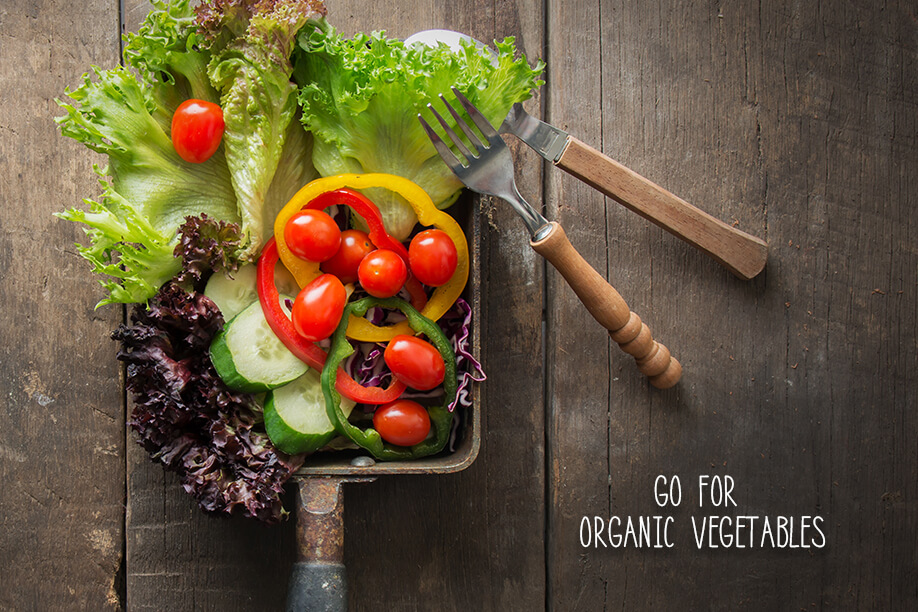
2. Cold water fish:
Fishes like Alaskan salmon, cod, and Alaskan halibut are cold water fishes. They are rich in Omega 3 fatty acids that are essential in hormone production.
These fatty acids are also responsible for reducing body inflammation.
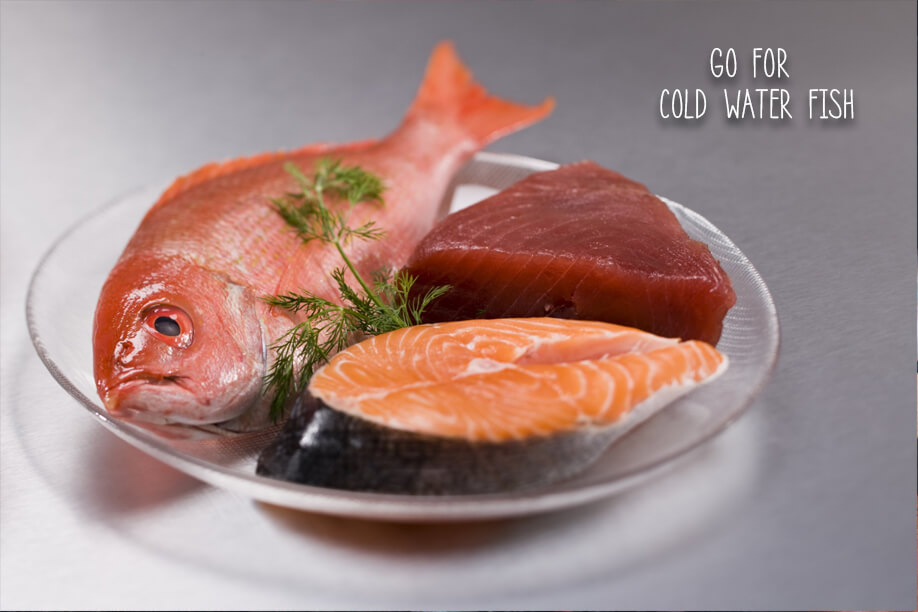
3. Whole grains:
Go for quinoa, brown rice, whole wheat etc.
These are rich in fiber that helps the body in regulating hormones besides being good for digestion and keeping a balanced blood sugar level.
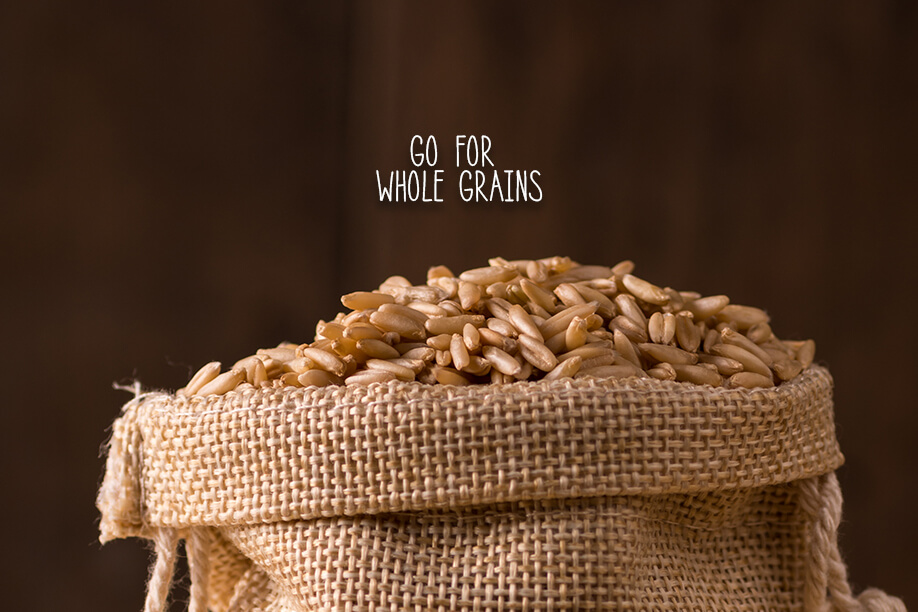
4. High fiber foods:
As mentioned above, fiber regulates blood sugar level.
It also helps in keeping a hormonal balance in the body, hence, good for many hormonal fertility issues like PCOS.
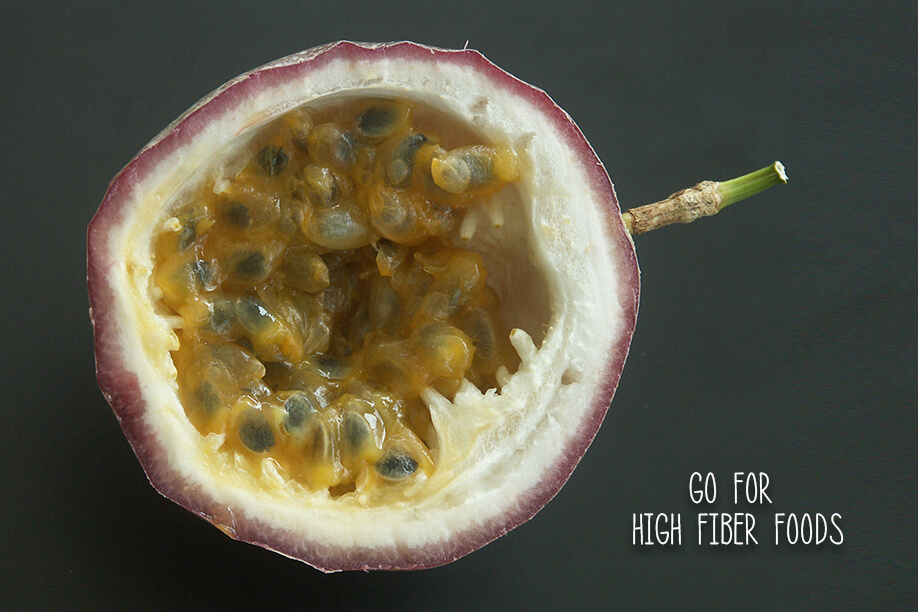
5. Citrus fruits:
Fruits like oranges, lemons are called citrus fruits. They are rich in Vitamin C, which helps in improving the quality of sperms.
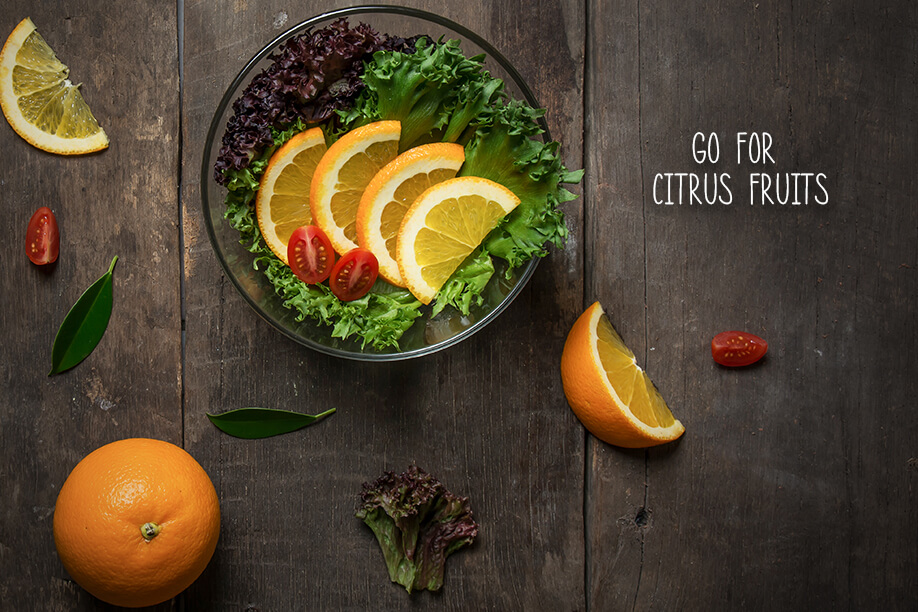
6. Almonds:
These contain Vitamin E, which plays a vital role in supporting the DNA in eggs as well as sperms.

7. Eggs:
Eggs are rich in Vitamin D which is a known factor in improving fertility in women. For better results, opt for the farm fresh eggs.
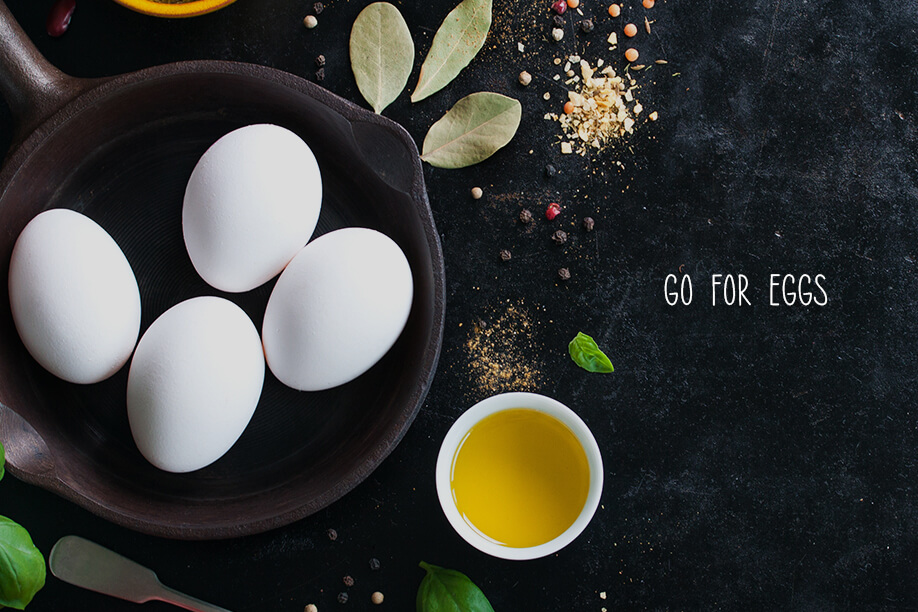
What not to eat when trying to get pregnant?
Avoid having:
- Caffeine
- Soy Foods
- Sugar added and pasteurized juices
- Binge drinking
- Processed food
- Fried and Non-fried seafood
FAQs about Fertility
Q. How can I ovulate naturally?
A. Some tips for promoting ovulation are:
Follow a fertility diet
Make sure you’re exercising routinely
Regulate hormonal balance
Reduce stress and anxiety
Q. What food to eat after ovulation?
A. Here are some foods to eat after ovulation:
Vitamin C rich foods
Blood nourishing foods like- eggs, black beans, lentils, kelp, beets, dark leafy greens, broccoli etc.
Vitamin B rich foods like leafy greens, eggs, whole grains etc.
Foods rich in zinc
High fiber foods
Q. How long does it usually take to get pregnant?
A. Usually, a year is the time period when a fertile couple can expect to get pregnant.
Q. Can being overweight stop you from getting your period?
A. Overweight may cause delaying of periods which if not controlled may lead to serious menstrual issues.
Why are these nutrients necessary to be included in your Fertility Diet?
Here’s why:
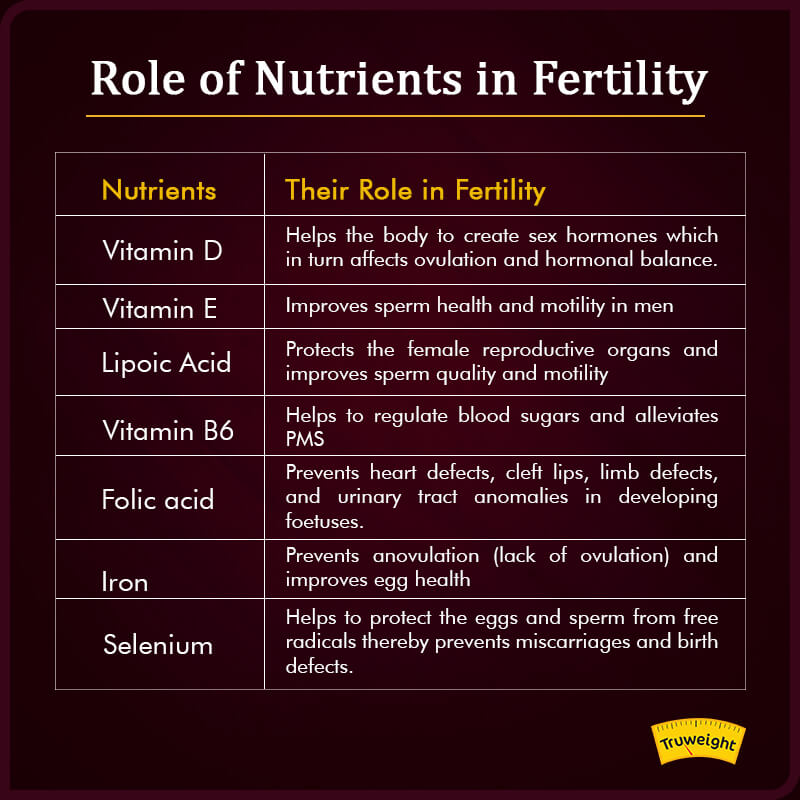
Weight and Fertility Diet:
Weight can be a prime factor in decreased fertility. And it is applicable to both men and women.
Women who are obese or overweight may have irregular menstrual cycles and may take a longer time to conceive
Moreover, overweight in women comes with pregnancy risks like preeclampsia (a pregnancy complication characterised by high blood pressure), gestational diabetes, miscarriages etc.
Weight affects fertility in men too. Overweight men often find fertility issues like low sperm count and low sperm motility or low sperm movement.
Fertility diet is a natural way to fulfil the nutrient requirements of the body so that it can positively respond to conception.
At Truwieght, there are many stories where a change in the diet plan brought about weight loss along with controlling health issues like PCOD which is one of the rising problems of causing infertility. Have a look at Neeharika’s story against weight and PCOD.
So before opting for any medical treatment, you can always give fertility diet a genuine try. After all, it is natural as well as reasonable.

All the fertility problems simply show the state at which we are as a humanity…
Thank you for your feed back.
Very informative article. Maintaining healthy diet is especially important when trying to conceive. Make sure you are getting proper nutrition. Include fertility friendly foods in your diet such as salmon, fruits, beans, vegetables etc.
Thank you for your feedback. Keep following our blog for more such articles.
Nice blog ! Very useful information
Thank you for your valuable feedback.
Great list for fertility diet, thanks for sharing
Thank you for writing to us. Keep following our blog.
Hi, Thank you for your feedback.
Thanks for sharing great information. Its very useful to fertility diet patient.
We appreciate your feedback. Thanks for writing to us.
Thank you for sharing this useful information and ideas with all of us.
Hi! We would like to take this opportunity to thank you for sharing you valuable feed back towards our article, We are glad to know that our blog was very useful to you . keep following our blog to know such more health information.